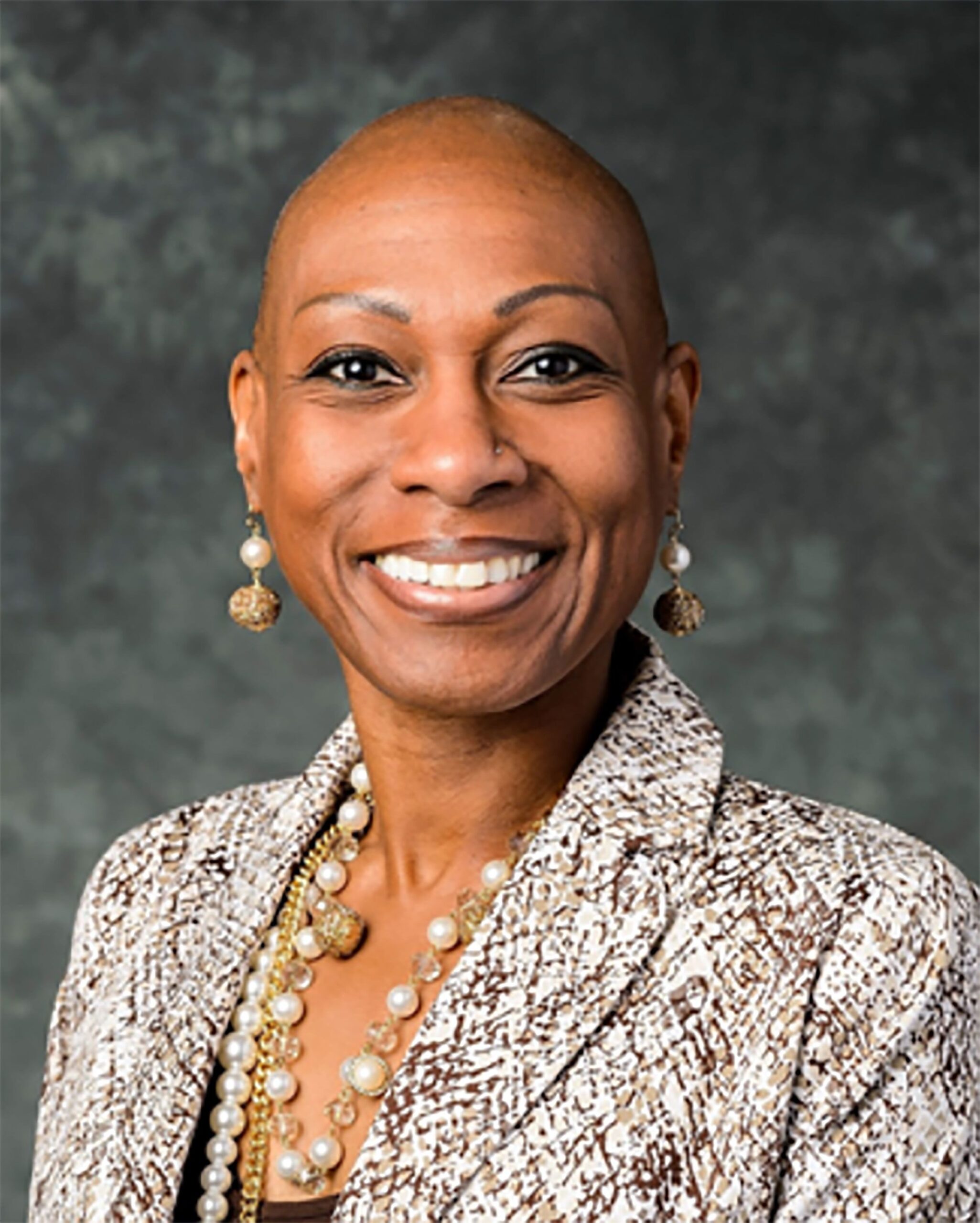
Mandatory Credit: From Lincoln University
By Leah Asmelash, CNN
Editor’s note: If you or someone you know is struggling with suicidal thoughts or mental health matters, please call the 988 Suicide & Crisis Lifeline by dialing 988 to connect with a trained counselor or visit the 988 Lifeline website.
(CNN) — Antoinette Candia-Bailey loved Lincoln University.
A proud alum of the historically Black college, Candia-Bailey — known as “Bonnie” to her friends — stuck a Lincoln University bumper sticker on her mom’s new car as a freshman. When she graduated in 1998, her mother bought a brick in her name.
And when she returned to the Jefferson City, Missouri, school last May as its Vice President for Student Affairs, friends say she was so excited that she purchased a second brick to commemorate her new role.
Then, on January 8, Candia-Bailey died by suicide — five days after being let go for various reasons, including failing to address the concerns of employees under her supervision, according to the termination notice.
In a final note emailed to staff at the university and friends, one of whom sent the letter to CNN, Candia-Bailey detailed a grim reality that was far from her early hopes for the position. She claimed she was “harassed and bullied” by superiors and was ignored when she expressed concern for her mental health. A university investigation is underway.
The aftermath of Candia-Bailey’s death has raised painful questions for Lincoln University staff and students, sparking discussions nationwide about mental health concerns among people of color in the workplace.
A woman in pain
Candia-Bailey was in her role at Lincoln for less than nine months before being terminated. Her final letter, obtained by CNN, is a nearly 6,000-word email, which includes screenshots of text conversations, emails and web links alleging failed communication efforts, a lack of professionalism and inappropriate behavior by senior leadership.
She also detailed personal grievances with Lincoln University President John Moseley, her boss, alleging mismanagement and discrimination.
Candia-Bailey’s letter wasn’t all accusations. The administrator also got very personal about her own mental health challenges and reflected on the dangers of staying in what she called a highly stressful job.
Monica Graham, a Lincoln University alum and friend of Candia-Bailey, told CNN she was “shocked” by the email.
“Reading the things that I read in that letter, it made me cry,” said Graham. “It did. Because I didn’t know it was that bad.”
Graham continued, “She was suffering in silence.”
Anger on campus
A month after Candia-Bailey’s death, Lincoln alumni and students are still grappling with grief and calling for accountability of school officials they believe had a hand in Candia-Bailey’s claims of mistreatment.
Moseley, the school president, has not publicly addressed the allegations. He has gone on paid leave, while the school’s board has since hired a third-party team to review the university’s “management of personnel issues,” as well as the allegations made by Candia-Bailey.
“As a Board, we are focused on having an independent expert promptly examine all of the facts so that we can take appropriate steps,” said Board of Curators President Victor Pasley in a January 18 statement. “As a University community, we want to prioritize the mental health of everyone here and make sure each employee and student is treated with dignity and respect.”
When asked for additional comment in February, a Lincoln spokesperson referred to the university’s previous statements made in January.
Calls for accountability have echoed online and on campus. With support from alumni, current students have staged multiple demonstrations, including at a special university board meeting in January, during which the board closed proceedings before the students could speak, according to CNN affiliate KRCG.
In that meeting, the university’s board of curators appointed an acting president and hired a team of attorneys to conduct an independent review of the situation. The board then closed the meeting, saying personnel matters cannot be discussed publicly.
“We were just trying to have a conversation, just to get some type of answers or just to be heard,” Kenlyn Washington, the student body president, told KRCG. “When they said, ‘Okay, we’re having a closed meeting now,’ it was very frustrating.”
Moseley has not responded to CNN’s requests for comments
CNN has reached out to Moseley multiple times for comment on this story.
Before he became president of the university, Moseley served as the school’s athletic director. He was also the head coach of the men’s basketball team.
He received his Ph.D in education in 2021, one year before he assumed the position as Lincoln’s president.
Graham has been vocal in her desire to see Moseley removed from his position, claiming he does not have the administrative experience to lead the school.
“You cannot have somebody in a job like that being able to manage other people without the experience,” Graham told CNN.
Sherman Bonds, national president of the Lincoln University Alumni Association, has also expressed concern over the university’s leadership in the wake of Candia-Bailey’s death.
“The university’s institutional care has been breached,” Bonds wrote in a January letter to the Lincoln University Board of Curators, obtained by academic news site HBCUBuzz. “The present administration has become a liability to the mission and health of the institution.”
Bonds has also called for better mental health resources on campus.
Candia-Bailey’s family did not respond to CNN’s request for comment.
A reflection on the importance of mental health
Mental health professionals agree it is nearly impossible to blame suicide on anything other than an individual’s inner pain. While questions of racism and leadership surround Candia-Bailey’s death, the bottom line is that a woman was in trouble and took her own life for reasons that may never be fully publicly known. Still, her allegations and references to mental health struggles have resonated with many Black professionals who say they have faced challenges in the workplace.
“It is undeniable that Black women are under attack in the workplace and beyond,” said one writer, who did not know Candia-Bailey personally, in an op-ed published in ESSENCE. “And it is costing us our well-being, our mental health, and for some their lives.”
For Danielle Dickens, an associate professor at Spelman College who studies psychology and identity of Black women, Candia-Bailey’s claims of mismanagement were heartbreaking, but familiar. Black women are often underrepresented in higher education positions, Dickens said, and research shows they are more likely to experience workplace bullying and stress because of discrimination, marginalization and isolation. This can take a toll both on their career advancement and their physical and emotional well-being, she said.
“Unfortunately, many Black women personally relate to this story because of their own personal experiences of discrimination, isolation, and/or bullying in the workplace,” Dickens said. “Or they know someone, another Black woman, who had that shared experience.”
That the allegations have been raised at an historically Black college or university (HBCU) only exacerbates concerns. Even in these spaces, Black women can still be prejudiced against, or perceived as stereotypically angry, aggressive or difficult, Dickens said.
“It brings up the issue of systemic forms of oppression, such as sexism and racism and how they permeate throughout academia, even at HBCUs,” Dickens said.
Candia-Bailey’s death is a personal tragedy, but the ripples it has created across the Lincoln University campus and beyond shine an uncomfortable spotlight on mental health and racial dynamics in the workplace. Those issues are complex on their own, but together, they can be even more difficult to address.
Graham, Candia-Bailey’s friend from the university, says it’s important to do so anyway.
“I don’t want her death to be in vain,” she says. “If nothing else, I want the attention to be more about people getting help for their stress.”
The-CNN-Wire


